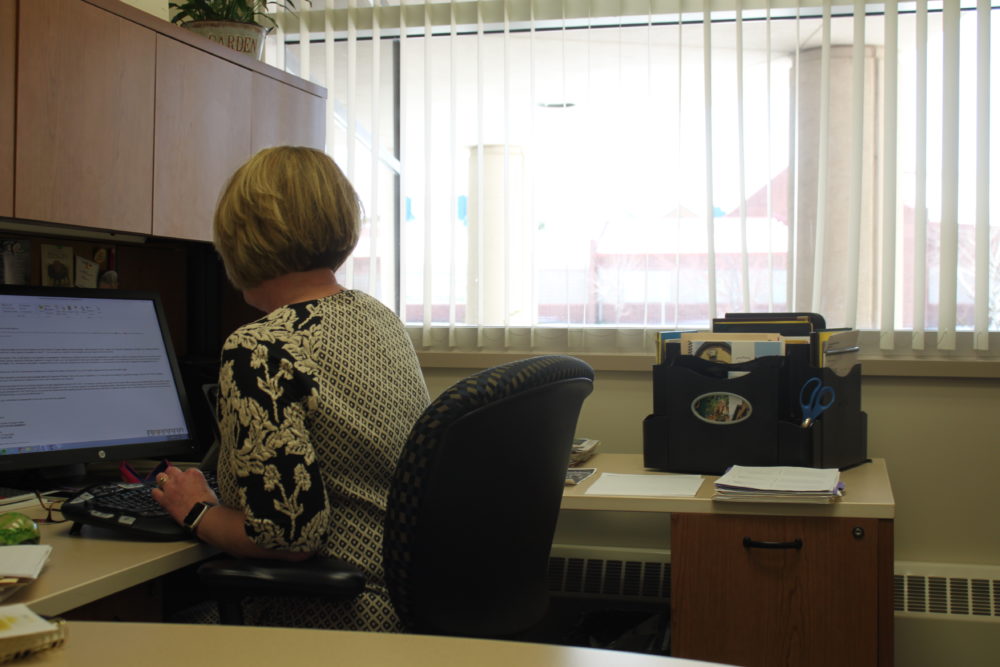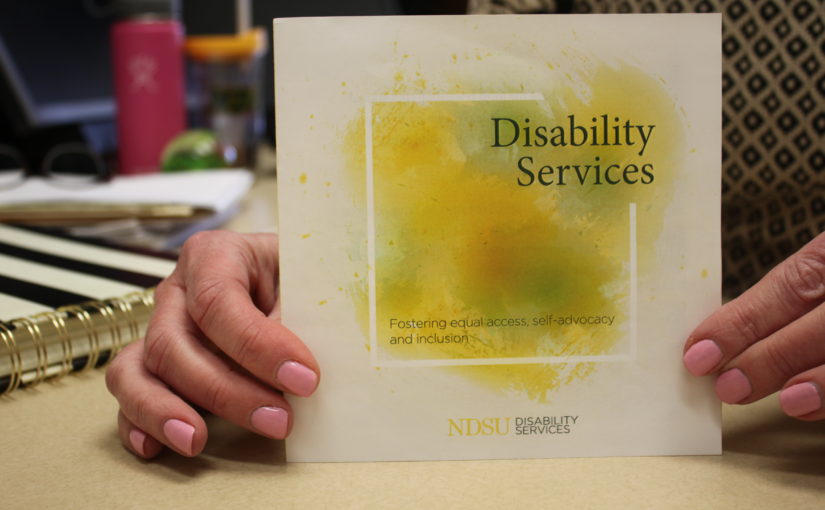
Gail Bollinger in her office.
What is the one thing NDSU Disability Services wants all NDSU students to know?
“We are here.”
Deep within the bowels of Wallman Wellness Center is the office of Disability Services.
Kari Chaffee Klettke, disability specialist, Beth Fiechtner, accommodations coordinator, and Gail Bollinger, disability services director, sat down with me to describe something that I have luckily never had to consider.
On syllabus day we all hear it: “Any student needing special accommodations.”
What does this mean?
Back in 1990, the Americans with Disabilities Act was founded. An effort to level out the classroom field as Bollinger put it. She pointed to her glasses and said, “These don’t give me X-ray vision.” For some people, a test may be harder to take because of the environment. For others, a note taker may be necessary. It is just a way to make it accessible and fair for all students.
Where disability may seem like something that can be only seen on the surface Bollinger told me about all of the “beneath the surface conditions” including depression, anxiety, post-concussive syndrome as well as people on the autism scale.
On syllabus day after hearing these NDSU students who need such services would contact NDSU Disability Services. After this, documentation would be presented from a licensed professional. Following that, a screening would occur where the proper accommodations would then be presented to the student.
It was made clear though, “This is all confidential.”
There is one thing that may get in the way of this.
“The student needs to self-identity,” Bollinger said.
Self-identifying can be hard, and also knowing about what constitutes a disability.
A student may not understand that depression and other mental health issues are covered under this department.
“A lot of times the instructor may do a referral to us,” Fiechtner said. A professor that notices a student not showing up to class or possibly losing interest may refer them to disability services.
“The thing about approaching is not saying you have a disability,” Bollinger said that approaching it in a way that makes accusations is important, simply referring a student to get the help they need.
To get this conversation started, though, Bollinger made it clear, “We can’t tell someone they have a disability.”
This comes back to self-identification, which can easily be the hardest thing about the process.
Klettke said to combat this confidentiality is given. Your professor doesn’t need to know what disability you have, rather they will only know of your specific accommodations.
“The student can choose,” Klettke said.
So how many students use NDSU Disability Services?
“Roughly 300,” Klettke noted she knows not everyone who is eligible takes the services that are offered. They are growing, knowing the statistics though it relies on self-identification. Through outreach, they hope to get the help that students need.
According to their mission statement NDSU Disability Services mission is to “facilitate equal access in academic pursuits, promote self-advocacy and foster inclusion for students with disabilities.”
What NDSU students need to know is that there is help for those who need it.
